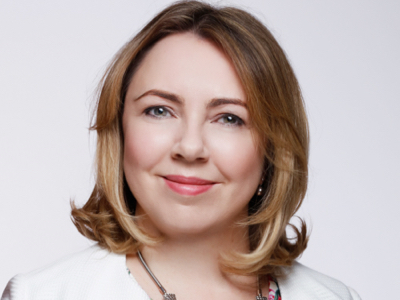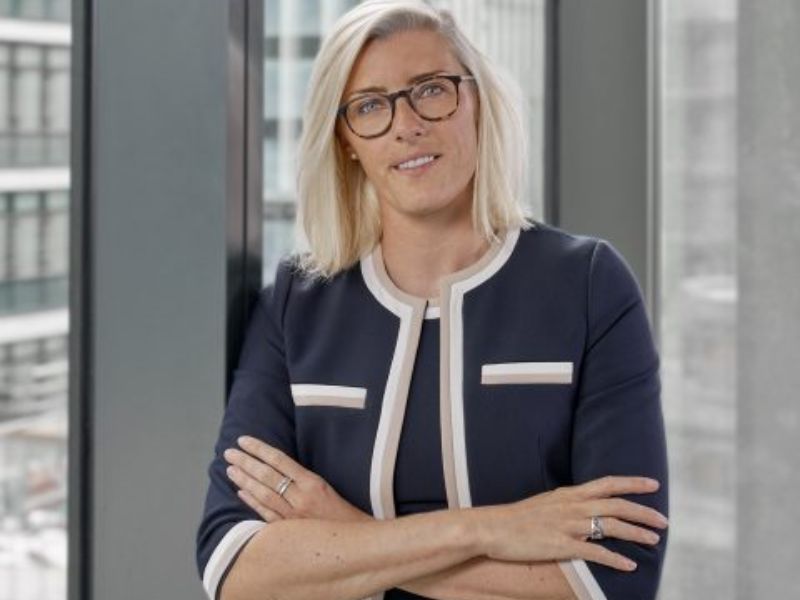Please give us a potted career history and a little bit about what Paysafe Group plc does.
 Paysafe delivers a total suite of payment services globally, with key focus in providing Payment Processing to merchants, Digital Wallets and Prepaid Services. Paysafe is trusted to move billions of dollars in over 200 countries each year, thanks to our strategy; ‘every point of every payment should be relevant, simple and secure’. 3
Paysafe delivers a total suite of payment services globally, with key focus in providing Payment Processing to merchants, Digital Wallets and Prepaid Services. Paysafe is trusted to move billions of dollars in over 200 countries each year, thanks to our strategy; ‘every point of every payment should be relevant, simple and secure’. 3
I joined Paysafe in 2013 initially as a consultant to work on a number of initiatives including securing our principle membership of the card schemes Visa and MasterCard, which enabled us to become an acquirer. Previously I’ve worked as a consultant in Experian, MasterCard, RBSG, Barclaycard, Capital One and Visa in a variety of technical and business roles, so the role at Paysafe was a natural fit. I have to say at the time I certainly didn’t envisage that I would transition from consulting to becoming a Paysafe executive or lead the newly established acquiring business in Europe, but it’s been a natural progression during my time here.
How did it come about that you were offered a position on the executive team?
Becoming a member of the Paysafe executive team was really thanks to two things; the outcome of establishing the acquiring and issuing businesses in Europe, and to two Canadian entrepreneurs Joel Leonoff and Danny Chazonoff – my Group CEO and COO respectively, who saw something in me and valued my ability to get stuff done. In many companies people that focus on delivery are rarely elevated so being offered a position on the executive team because of this was very rewarding. As part of my role I also sit on the Paysafe Limited Board, which is where the acquiring business which is regulated by the FCA legally falls. I am also an FCA approved director.
Is that something you’d always worked towards or is it a happy outcome of being successful in your day-to-day job?
If I was to be honest I originally saw myself as a consultant, I had always felt it would be hard for me to find a company that was good fit for my management style and personality, as well as being supportive and helping me develop further. In Paysafe however I’ve been really pleased to find a great fit to the culture and the roles.
There’s a lot of inequality in the city still, have you personally experienced that in your own working life?
Of course throughout my career there have been many examples of inequality; that doesn’t go away just because I am in a more senior role. I hear so much from so many women across the industry about gender inequality, not to mention other diversity issues which also suffer inequality in the city. As leading women in business, we need to stand up for ourselves and every other woman in our organisation to ensure we have the same opportunities as men. It’s not easy and we need to take courage and lead with spirit. Those of us fortunate enough to be in senior positions have to learn our own craft, to know ourselves, and to be all that we can be, and then in knowing we have our own courage, we can help others. So the priority is to be the best that you can be as a woman in business and be the front-line in leading change. If we each have the courage to do that then together we can lead an army of women on the same journey, helping them to develop themselves and take their own courage, in learning from inspiring leaders.
There was a study last year that showed that companies with at least one female board director perform better. Why do you think that is?
I wholeheartedly believe in the benefits of diversity in organisations at all levels. Females make up a large proportion of the workforce and it makes sense that there should be fair representation by females at every level in an organisation. The same applies for other minorities, which studies have indicated lead to an improved performance on corporate and social governance metrics. The benefit of diversity and in particular including women is that it helps to bring different points of view, which helps with better, more balanced decision-making, which is imperative at board level.
The FTSE 100 has improved the ratio of male to female board directors quite considerably, why can the same not be said for the FTSE 250 do you think?
Even more telling are the figures for the number of executive female directors with only one in ten women in the FTSE 100 and only one in 20 in the FTSE 250. While quotas have helped the FTSE 100 and 250 deliver more female non-executive directors, the reality is that the number of women in executive roles has barely moved from 2010 to 2015 with only eight extra female executive directors in the FTSE 250. Clearly it is not enough and maybe we need quotas for executive directors as well as the non-executive roles. The idea of quotas grates with me; I believe it should be the right person with the right skill set for the role, but I am not sure what other measures can help given the situation hasn’t changed in decades.
Do successful women or those in driving seat within organisation, still have a problem with being labelled the office ‘bitch’?
Yes, and I think it is an unfair situation. I have experienced this myself – especially when raising and challenging issues. And it’s always hard, right? Always speaking up, and debating proactively and constructively about what needs to be done for the greater good of a company, when there are other poor execs who would rather tow the line, and not speak up or run political agendas. There’s also those that choose to view that women challenging issues are either highly emotional, or passive aggressive; I don’t think any man challenging situations or raising concerns would ever have these labels. However in spite of negativity across the years, I always make sure that I speak up and make sure that what’s done is done because it’s the best thing for the company as a whole.
I am my own woman, and I am Do or Die on it. This makes for a lonely position most of the time but it’s how I lead. I am not afraid of the risk of challenging things and living the consequences. However despite the equality laws in many companies there are still many barriers for women and management behaviours are still not always the best they could be. For example the way that females are perceived in the workplace by their colleagues is something that I do give a lot of thought towards. Most famously Margaret Thatcher had voice training to lower her tone and pitch – something that maybe I should invest in, as I am very conscious of the tone of my voice when communicating to other male executives.
We’re just seen the appointment of the UK’s second female prime minister and potentially more women in the cabinet, do you think this will have a positive impact on the city in any way?
You would like to think so, however I think the challenges remain and a lot of change needs to occur not just at board room level but for me the number of executive opportunities needs to increase. For that to happen there needs to be a significant cultural and behaviour changes in the city towards more of an open policy to recruiting outside of the typical networks.
More than 70 banks and city firms have agreed to link their senior execs bonus to the appointment of women in senior roles (Women in Finance Charter). Is this a good thing or positive discrimination gone too far?
It’s unfortunate that this charter needs to exist, but the gap between men and women hasn’t narrowed and I can understand why this charter has achieved broad support. Perhaps recruiters can play a better role in ensuring that there is a wider pool of female candidates for senior roles and perhaps they should be measured on how many they put forward.
Where does Paysafe’s equality opportunities commitment stem from? Is there a particular person within the organisation who is steering this and does there need to be a ‘champion’ in all organisations?
This isn’t for one person to champion or just to be led by an HR department, this is something that needs to be committed to by all of the executive team. At Paysafe we are working hard to ensure that we have an inclusive culture. I believe that having a diverse workforce and an inclusive corporate culture is crucial in order to have a strong business today and ensuring a resilient future, but it’s a journey for sure.
Have you now ‘made it’? What’s next for Andrea Dunlop?
No, in fact I am just getting started, doing the best job I can with the experience, skills and content that I have. My role at Paysafe is definitely a step forward from previous roles but I feel there will be future opportunities that will challenge me even more as I conquer today’s challenges.
There is much more for me to do at Paysafe though, having taken on payment processing for Europe along with issuing and acquiring. I am sure in the not-so-distant future I will be looking to expand my remit, activities and leadership to new challenges, but I am always focused on the business at hand and making these businesses a success is my top priority and something that I really do enjoy despite the challenges.








